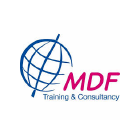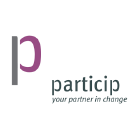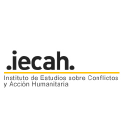WORKING WITH DG ECHO AS AN NGO PARTNER | FPA 2014 - 2020
HUMANITARIAN PROCUREMENT CENTRES
Humanitarian Procurement Centres (”HPC”) are not-for-profit organisations specialised in the technical and commercial management of supplies and services necessary for the implementation of humanitarian actions. They can provide technical assistance in procurement or supply pre-established stocks, purchasing or logistics capacity.
Regardless of the form of their legal establishment, HPCs must be non-profit organisations maintaining high standards of integrity and transparency and must be available to supply their goods and services to all ECHO's Partner humanitarian Organisations ECHO Partners on the basis of equal treatment regarding, for example, price, performance and quality.
In respect to their legal personality, HPCs can be:
-
Specialised humanitarian procurement organisations with legal personality set up according to the national legislation of their country of establishment, which may be outside the European Union or
-
Specialised supplies, logistics and procurement departments or services of non-governmental organisations or international organisations, including international public sector organisations set up under international law by intergovernmental agreements, specialised agencies set up by such organisations (e.g. the UN and its agencies), the International Committee of the Red Cross or the International Federation of the Red Cross and Red Crescent Societies.
Having regard to the type of services that they usually provide, HPCs can be:
Depending on their areas of specialisation, the HPCs recognised by ECHO supply goods or services in one or more of the following areas: Pharmaceutical products & medical supplies; Medical devices & equipment; Prosthetic Technology; Veterinary; Food; Livelihood support; Water & Sanitation; Shelter & Non-Food items; Engineering, Radio and Telecommunications; Transport; Administration and Services.
ECHO assesses those entities wishing to be recognised as HPCs in accordance with the set rules and procedures (see below).
WHAT ARE THE ADVANTAGES?
ECHO policy aims, as part of a wider objective of supporting safer and more efficient procurement, to develop further the concept of HPCs and to facilitate humanitarian organisations' recourse to their services.
ECHO's Partners have a number of advantages when procuring goods and services through HPCs. Procurement procedures are simplified, as ECHO's Partners may use a single quote procedure to award the contract to an HPC if such is foreseen in their own rules.
They pass orders to the HPC without recourse to competitive tendering or publication irrespective of the amount of the contract.
By dealing with an HPC, ECHO's Partners may be assured that they are respecting the minimum procurement requirements and obligations requested by ECHO without themselves having to conduct an in-depth analysis of the functioning and financial viability of the HPC. ECHO assesses the quality assurance provisions of the HPC on the basis of robust eligibility criteria for recognition as an HPC, which are based on WHO Model Quality Assurance System (”MQAS”) for procurement of medical supplies.
Other than these, the criteria for recognition as an HPC also include, appropriate legal personality and registration, non-profit nature, non-discriminatory sales and fair pricing methodology and policy (including all overheads & mark-ups), expertise in procurement and related activities, well-documented and fair procurement procedures, and adequate financial and administrative capacity.
Likewise, as ECHO has already assessed that the HPC has fair pricing structures, it is neither necessary nor useful for the Partner to conduct its own assessment of the HPC's prices or to do its own price comparison of the various HPCs by requesting a number of offers. ECHO considers that procurement from any of its recognised HPCs fulfils the best value principle. Moreover, as the HPCs are not-for-profit entities, the extra work in answering requests for offers from ECHO's Partners would create unnecessary financial and administrative burden for HPCs, which may thus also increase the price of products.
WHO IS RECOGNISED AS AN HPC?
The online HPC Register (available below) provides a list of the organisations which currently benefit from the recognition by ECHO as HPCs as well as an indication of their main areas of activity and the countries to which they supply goods or services.
This Register does not entail any contractual relationship between ECHO and the HPC. ECHO will therefore not accept any liability for failures to respect contractual obligations by HPCs. Likewise ECHO recognition of a given organisation as an HPC cannot be presented as a system of preferred vendors.
While ECHO's recognition of an HPC does imply that the HPC's quality assurance systems fulfil the set criteria to ensure the supply of safe products, Partners are themselves responsible to ensure that goods and services delivered by HPCs correspond to those actually ordered and are of good quality, as they do with any other purchase.
In cases where the quality or service by an HPC falls below those expected, the Humanitarian Organisation shall inform ECHO of these shortcomings and circumstances but should pursue the matter directly with the HPC.
Recognition as an HPC by ECHO may also have implications in contexts of other areas of Commission aid. The Commission's department for Development and Co-operation (EUROPEAID) includes reference to HPCs in its rules on Procurement by grant Beneficiaries in the context of EU external actions. Article 7 (j) of this text provides that procurement from an HPC may be made through a negotiated procedure on the basis of a single tender.






